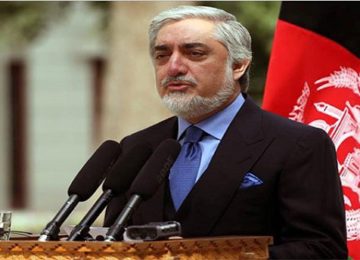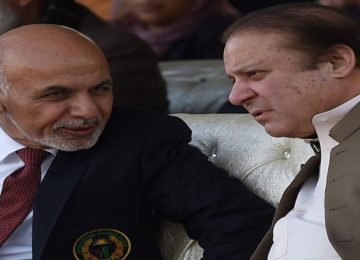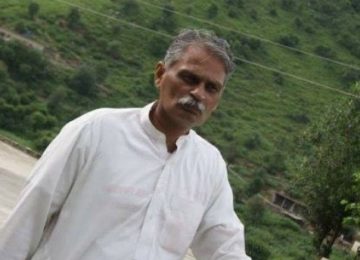July 19, 2018
The last few months have witnessed a tremendous improvement in Pakistan and Afghanistan’s bilateral relations as seen in the signing of their landmark framework; Afghanistan-Pakistan Action Plan for Peace and Solidarity (APAPPS). This bilateral agreement has been the result of numerous behind-the-scenes efforts to work together after a long deadlock, said Ambassador Seema Ilahi Baloch, who was speaking at the Pak-Afghan Youth Dialogue forum held at Center for Research and Security Studies (CRSS) on July 19, 2018. The theme of the dialogue was ‘Pak-Afghan Bilateral Developments under the New Framework of APAPPS’ which was attended by 22 participants, comprising young Afghan and Pakistani students and young professionals, belonging to diverse demographics such as Kabul, Islamabad, Dera Ismail Khan, Ghazni, Herat, Kandahar, Tribal Districts (formerly FATA) of Khyber-Pakhtunkhwa, Bajaur and Waziristan, Mardan, Rawalpindi, in addition to other areas.
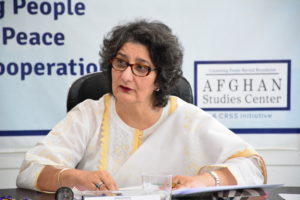
Ambassador Baloch, who has served as Ambassador to Poland and High Commissioner to Sri Lanka, besides other notable positions and representation at international forums during her illustrious career. She has also been part of Beyond Boundaries – a Pakistan-Afghanistan Track 1.5/II initiative of CRSS and its Afghan counterpart supported by British government since 2015. She stated that they witnessed unprecedented optimism in Kabul last month in their meetings with Afghan CEO Dr. Abdullah Abdullah, Opposition Leader Gulbuddin Hekmetyar, and other Afghan officials, as part of Beyond Boundaries’ delegation.
She told the participants that Islamabad and Kabul agreed on seven point’s schema under APAPPS which include: Pakistan to support the Afghan-led and Afghan-owned peace and reconciliation; the two countries to undertake effective action against fugitives and irreconcilable elements posing security threats to either of the two countries; both countries commit to deny use of their respective territories by any country, network, group or individuals for anti-state activities against either country; to put in place a joint supervision, coordination and confirmation mechanism through Liaison Officers (LOs) for the realization of the agreed actions; the two countries commit to avoid territorial and aerial violations of each other’s territory; the two countries to avoid public blame games and instead use APAPPS cooperation mechanisms to respond to mutual issues of contention and concerns; and establishment of Working Groups and necessary cooperation mechanisms.


Ambassador Baloch further told that under the new framework, both sides have agreed on a broad-based, structured engagement on issues of mutual interest and decided to operationalize five working groups which include; political/diplomatic, military/intelligence, peace and solidarity, refugees, and the working group for economic issues. Both sides know this will only be helpful once the action within the five working groups under APAPPS is implemented. Else, it will be a great opportunity lost from both sides, because right now it is the only bilateral document. It is the best way to keep out actors who want to come in for their vested interests and move forward together. Both Afghanistan and Pakistan know that there is no alternative to peace, she said. The narrative that Afghanistan’s stability depends on Pakistan works both ways as Pakistan’s stability also depends on Afghanistan. Unless the two countries work together, there will be no peace in this region, she added.
 Earlier, Aized Ali, Project Director at CRSS, welcomed the participants and apprised them about the ongoing CRSS Pak-Afghan Track 1.5/II Initiative ‘Beyond Boundaries’ which has so far convened 15 high level unofficial meetings between the two Pak Afghan influencers’ groups, mainly in Kabul and Islamabad, but also in other major cities such as Karachi, Lahore, and Mazar-e-Sharif, to bridge the gulf of mistrust and improve bilateral relations between Pakistan and Afghanistan. He further told the participants that the Afghan Studies Center is an off-shoot of the initiative, aimed to provide the youth of both countries a platform to inculcate critical, creative and out of box thinking to dispassionately interact, exchange ideas and engage and cooperate to remove the distrust and mis-perceptions, as they can emerge as future leaders and ambassadors of peace. He also apprised the audience that the next round of APAPPS working groups will be hosted by Afghanistan and all five working groups will meet in Kabul on July 22 to take the process forward.
Earlier, Aized Ali, Project Director at CRSS, welcomed the participants and apprised them about the ongoing CRSS Pak-Afghan Track 1.5/II Initiative ‘Beyond Boundaries’ which has so far convened 15 high level unofficial meetings between the two Pak Afghan influencers’ groups, mainly in Kabul and Islamabad, but also in other major cities such as Karachi, Lahore, and Mazar-e-Sharif, to bridge the gulf of mistrust and improve bilateral relations between Pakistan and Afghanistan. He further told the participants that the Afghan Studies Center is an off-shoot of the initiative, aimed to provide the youth of both countries a platform to inculcate critical, creative and out of box thinking to dispassionately interact, exchange ideas and engage and cooperate to remove the distrust and mis-perceptions, as they can emerge as future leaders and ambassadors of peace. He also apprised the audience that the next round of APAPPS working groups will be hosted by Afghanistan and all five working groups will meet in Kabul on July 22 to take the process forward.

In the Q & A session, participants raised several questions including; the sustainability of the APAPPS, the developments on Pak-Afghan trade and connectivity, the role the youth can play in peace as well as in economic development, reducing the distrust and misperceptions. They felt that social media is an important tool for youth to change perceptions and negative narratives. They stressed that they can use this forum for positivity and connectivity between the youth of both the countries. Participants also raised the importance for the need of media, students and academia’s exchange visits, as well as cultural exchanges through liberal arts and musical concerts, stressing that the cultures of both the countries are same.
Responding to questions by the youth participants, Ms. Baloch said among many positive developments, one worthy to mention is regarding trade and transit between Pakistan and Afghanistan. Leaders from both sides have also pledged to resolve issues in this regard. Pakistani PM Abbasi’s visit to Kabul was significant one enabling the environment for mutual cooperation, following which Afghan President Ashraf Ghani sent a high-powered delegation which held wide-ranging talks with Pakistani officials in Islamabad. Owing to these meetings, 80% of the issues regarding trade and transit have been resolved amicably.


The blame game has also significantly gone down. Things on ground and the nature of engagement could dramatically change from here and improve further if both sides hold on to these new guiding principles.
The rethink in Pakistan and Afghanistan relations has started not only because the two countries want it, but because there is convergence of interests of international and regional powers’ such as US, China, Russia, and Iran against the growing threat of Daesh the region. Interestingly, the National Unity Government of Afghanistan and Taliban have the same viewpoint, she noted. At the same time, the successful ceasefire agreed upon between the Afghan government and the Taliban has been another positive development towards peace in Afghanistan. Another significant development is the US Secretary of State Mike Pompeo’s recent statements claiming US’ willingness to not only work with the Taliban, but to also consider the possibility of pulling out troops.
Over the course of the past few years, the governments of Pakistan and Afghanistan have realized that for materializing any aspirations for economic connectivity, the two cannot live in isolation of each other. In conclusion, Ambassador Baloch stated: “we can only sustain the convergence of regional interests by putting geo-economics first, which implies that economic enhancement and connectivity, is the key for bilateral relations. This was also reaffirmed by President Ghani and former Prime Minister Abbasi in their April meeting.
At the end, the Afghan Studies Center (ASC) team nominated Ayesha Gul from Pakistan as the Pak-Afghan Youth Ambassador for the month of July 2018, who was then presented a shield by the Chief Guest. The ASC team also presented an honorary shield of appreciation to the Chief Guest.
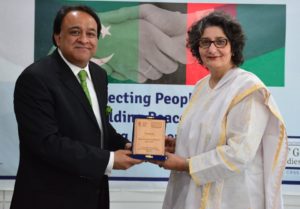
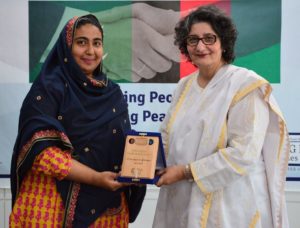
Consortium partner SaferWorld was represented by Ms. Neha Zaigham, Policy Advisor, while Sadia Sapsard, Second Secretary Political External and Adeela Bahar Khan, Political Officer from British High Commission also attended the session.

This was the 14th Pak-Afghan Youth Dialogue held under the Afghan Studies Center initiative of CRSS which has an alumni of over 400 Pakistani and Afghan youth now. Afghan Studies Center aims at encouraging peace narratives and critical thinking through its monthly Pak-Afghan youth dialogue series and quarterly training workshops, which also provide for the skill development of emerging future leaders from both countries.
© Copyright Center for Research and Security Studies (CRSS) and Afghan Studies Center (ASC), Islamabad.




